News
-
 Neuroscience
NeuroscienceAncient viruses helped speedy nerves evolve
A retrovirus embedded in the DNA of some vertebrates helps turn on production of a protein needed to insulate nerve cells, aiding speedy thoughts.
-
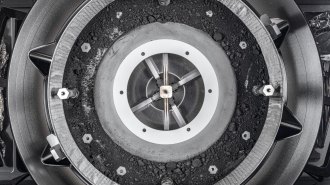 Planetary Science
Planetary ScienceNASA’s OSIRIS-REx nabbed over 120 grams of space rocks from asteroid Bennu
After being stymied by two stuck screws, NASA finally accessed a trove of Bennu asteroid bits. Mission scientist Harold Connolly tells what’s next.
By Adam Mann -
 Agriculture
AgricultureMixing up root microbes can boost tea’s flavor
Inoculating tea plant roots with nitrogen-metabolizing bacteria enhances synthesis of theanine, an amino acid that gives tea its savoriness.
By Nikk Ogasa -
 Health & Medicine
Health & MedicineNewfound immune cells are responsible for long-lasting allergies
A specialized type of immune cell appears primed to make the type of antibodies that lead to allergies, two research groups report.
-
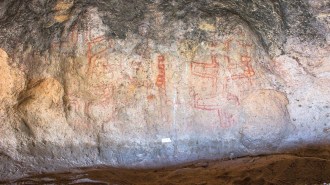 Archaeology
ArchaeologyThese South American cave paintings reveal a surprisingly old tradition
Radiocarbon dates point to an artistic design practice that began in Patagonia almost 8,200 years ago, several millennia earlier than previously recorded.
By Bruce Bower -
 Agriculture
AgricultureCould a rice-meat hybrid be what’s for dinner?
A hybrid food that combines rice, animal cells and fish gelatin could one day be a more sustainable way to produce meat.
By Meghan Rosen -
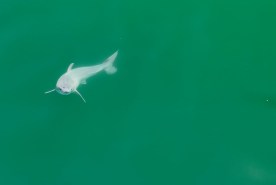 Animals
AnimalsDoes this drone image show a newborn white shark? Experts aren’t sure
If a claim of the first-ever sighting of a newborn white shark holds, it could help solve a mystery of where adult white sharks give birth.
-
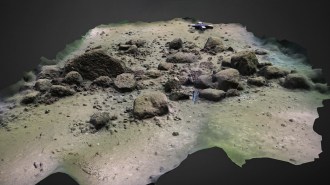 Archaeology
ArchaeologyThis Stone Age wall may have led Eurasian reindeer to their doom
Hunter-gatherers living 10,000 years ago in what is now Germany probably used the wall to trap reindeer in a nearby lake.
By Anna Gibbs -
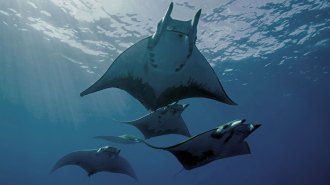 Animals
AnimalsMigratory fish species are in drastic decline, a new UN report details
The most comprehensive tally of how migrating animals are faring looks at more than 1,000 land and aquatic species and aims to find ways to protect them.
-
 Artificial Intelligence
Artificial IntelligenceHow do babies learn words? An AI experiment may hold clues
Using relatively little data, audio and video taken from a baby’s perspective, an AI program learned the names of objects the baby encountered.
-
 Neuroscience
NeuroscienceA new device let a man sense temperature with his prosthetic hand
A device that can be integrated into prosthetic hands capitalizes on phantom sensations to enable users to sense hot and cold.
By Simon Makin -
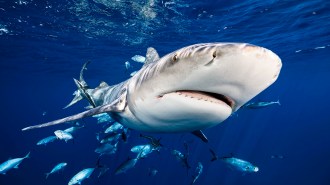 Animals
AnimalsHere’s how many shark bites there were in 2023
The chance of being bitten by a shark is still incredibly slim, according to a new report from the Florida Museum of Natural History.